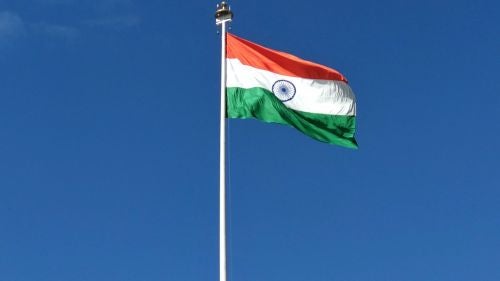The US-India Relationship: True Friends and Helicopter Sales

While Trump has hailed Prime Minister Narendra Modi as a "true friend" and extolled the world’s largest democracy, are Americans equally as enthusiastic about the US-India relationship?
US-India relationship
On February 24, President Trump arrived in India to embark on a short tour with Prime Minister Narendra Modi and announced a $3 billion dollar defense deal which will provide naval helicopters and other military equipment to India. Trump’s visit comes amid domestic turmoil in India following the passage of a new citizenship law which includes religion as a criterion for nationality. While the legislation provides a pathway to citizenship for the practitioners of several South Asian religions, it does not do so for Muslim Indians. With fears of structural discrimination rising, many Indians have taken to the streets to protest, in some cases leading to violence. A senior White House official said that President Trump will raise the issue of religious freedom during his private meetings with Modi. While Trump has hailed Modi as a ‘true friend’ and extolled the world’s largest democracy, are Americans equally as enthusiastic about the US-India relationship?
In the 2019 Chicago Council Survey, Americans were asked about whether the US-India relationship does more to strengthen or weaken US national security. Majorities of Republicans (62%), Democrats (66%), and Independents (61%) said that the relationship does more to strengthen US national security.
US-Indian Relationship and US National Security
Does the U.S. relationship with India do more to strengthen U.S. national security or weaken U.S. national security?
Similarly, the year before, the 2018 Chicago Council Survey asked Americans questions about the importance of the US-India relationship to the US economy and US security. For both the economy and US security, majorities of Americans said that the US-India relationship is either very or somewhat important. These majorities persisted across partisan lines.
Importance of US-Indian Relationship
How important is the relationship with India for the US economy/US security?
While Americans are broadly convinced of the importance of a US-India relationship, their general sentiments toward India have been more tepid; asked about how they feel toward India, Americans have hovered at around 50 out of 100, meaning that they do not particularly feel one way or the other. Moreover, this feeling was shared between parties in 2018 with Democrats and Independents rating their feelings at 53 out of 100 and Republicans saying 52 out of 100.
Feelings Toward India
Please rate your feelings toward India, with one hundred meaning a very warm, favorable feeling; zero meaning a very cold, unfavorable feeling; and fifty meaning not particularly warm or cold.
There was a slight bump in sentiment between 2008 and 2010, likely because President Obama heralded in 2009 a newly invigorated partnership with India to confront a host of international issues.
Despite Americans’ lukewarm feelings toward India, their faith in the importance of the US-India relationship shows that they hold a pragmatic view toward India. Undoubtedly, some Americans must be content to see President Trump affirming and strengthening the relationship between the United States and India, building on past steps to strengthen US-Indian ties. Furthermore, tense Sino-India relations have pushed India toward the United States, and Trump’s announcement of weapons sales will surely bring the two countries even closer together.

